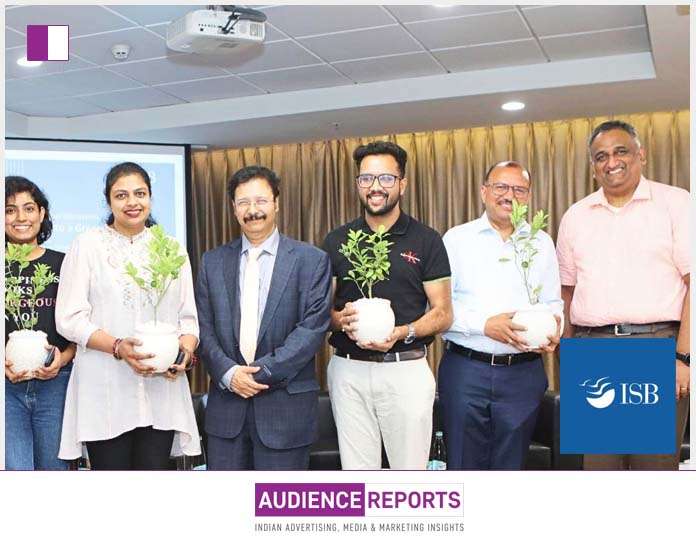Indian School of Business (ISB) recently hosted a transformative panel discussion titled “The Journey to a Greener Future” at its Mohali campus. This event, which brought together thought leaders and industry experts, underscored the institution’s commitment to sustainability and its role as a catalyst for change in India’s environmental landscape. Indian School of Business has consistently demonstrated its dedication to addressing global challenges through education, research, and collaboration, and this panel was a testament to that mission.
A Thought-Provoking Discussion : Indian School of Business organized the panel to delve into the pressing issues surrounding sustainability and to explore actionable solutions for a greener future. The discussion covered a broad spectrum of topics, including reducing carbon emissions, adopting renewable energy, building sustainable infrastructure through public-private partnerships, and improving freshwater ecosystems through groundwater restoration. Each topic was meticulously examined by the panelists, who shared their insights and experiences, providing a comprehensive overview of the steps needed to achieve sustainable living.
Leadership and Expertise : The session was chaired by Professor Dr. Chandan Chowdhury, Executive Director of the Munjal Institute for Global Manufacturing (MIGM) and the Punj Lloyd Institute of Infrastructure Management (PLIIM) at Indian School of Business. Dr. Chowdhury’s expertise and leadership provided a strong foundation for the discussion, guiding the conversation towards practical and impactful solutions.
Davinder Sandhu, Co-founder and Chairman of Primus Partners India, served as the Chief Guest for the event. He emphasized the necessity of collaborative efforts among all stakeholders, including businesses, government, policymakers, academic institutions, and civil society, to define a common green taxonomy and work towards a sustainable future. His address highlighted the importance of integrated approaches and the role that institutions like Indian School of Business can play in fostering these collaborations.
Insights from the Panelists : The panel featured distinguished speakers who brought diverse perspectives and expertise to the table:
Kalpana Ramesh, Founder of KAAVA Design Studio and The Rainwater Project, shared her experiences in water conservation and sustainable design. Her work emphasizes the critical need for innovative solutions to manage and restore groundwater, a vital resource for sustainable living.
Dhaval Shah, Chief Growth Officer at InCorp Global and an ISB alumnus (PGP CO ’11), discussed the role of businesses in driving sustainable practices. His insights into corporate sustainability strategies highlighted how businesses can contribute to reducing carbon footprints and adopting renewable energy sources.
Shefali Roy, Vice President of Marketing at Thermacool, provided perspectives on sustainable marketing and consumer behavior. She underscored the importance of educating consumers about sustainable products and practices, thereby driving demand for eco-friendly solutions.
A Call to Action : Indian School of Business’s event was more than just a discussion; it was a call to action. The panellists emphasized the urgency of addressing environmental challenges and the need for immediate and sustained efforts. They called on all sectors to collaborate and innovate, leveraging their unique strengths to create a sustainable future.
Building Sustainable Infrastructure : One of the key themes of the discussion was the development of sustainable infrastructure through public-private partnerships. Indian School of Business highlighted the potential of these collaborations to drive large-scale changes. By bringing together the resources and expertise of both public and private entities, it is possible to create infrastructure that not only meets current needs but also preserves resources for future generations.
Adopting Renewable Energy : The adoption of renewable energy was another critical area of focus. Indian School of Business stressed the importance of transitioning from fossil fuels to renewable energy sources to reduce carbon emissions. The panellists shared examples of successful renewable energy projects and discussed the policies and incentives needed to encourage wider adoption.
Improving Freshwater Ecosystems : Improving freshwater ecosystems through groundwater restoration was a topic that resonated deeply with the audience. Indian School of Business showcased initiatives aimed at preserving and restoring water bodies, emphasizing the role of sustainable water management in ensuring a stable supply of clean water. The discussion highlighted the need for innovative solutions and community involvement in water conservation efforts.
The Role of Education and Research : Indian School of Business has long recognized the power of education and research in driving sustainable development. The panel discussion underscored the importance of these elements in finding and implementing solutions to environmental challenges. By educating future leaders and conducting groundbreaking research, Indian School of Business is playing a crucial role in shaping a sustainable future.
Looking Forward : Indian School of Business continues to lead the way in sustainability, setting an example for institutions around the world. The “Journey to a Greener Future” panel discussion is just one of many initiatives that reflect the institution’s commitment to creating a better world. As Indian School of Business looks to the future, it remains dedicated to fostering innovation, collaboration, and action in the pursuit of sustainability.
Indian School of Business’s recent panel discussion was a significant step towards addressing the critical environmental issues of our time. Through insightful dialogue and collaborative efforts, Indian School of Business is not only raising awareness but also driving tangible change. As the institution continues to champion sustainability, it serves as an inspiration to others, demonstrating that with commitment and collective action, a greener future is within our reach.






































